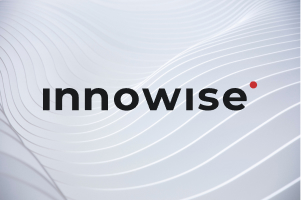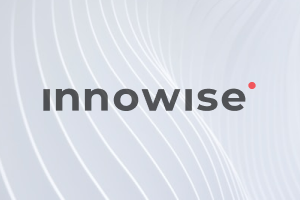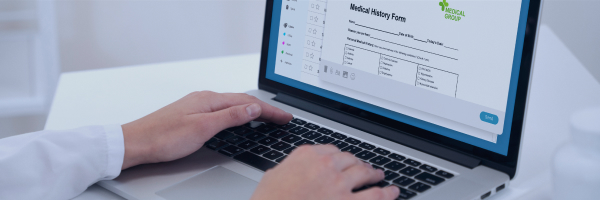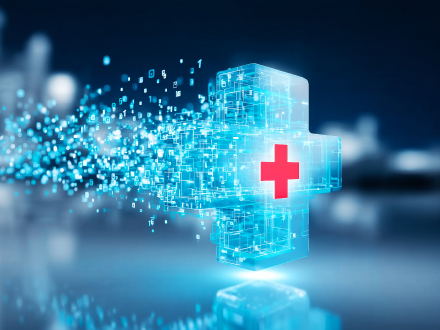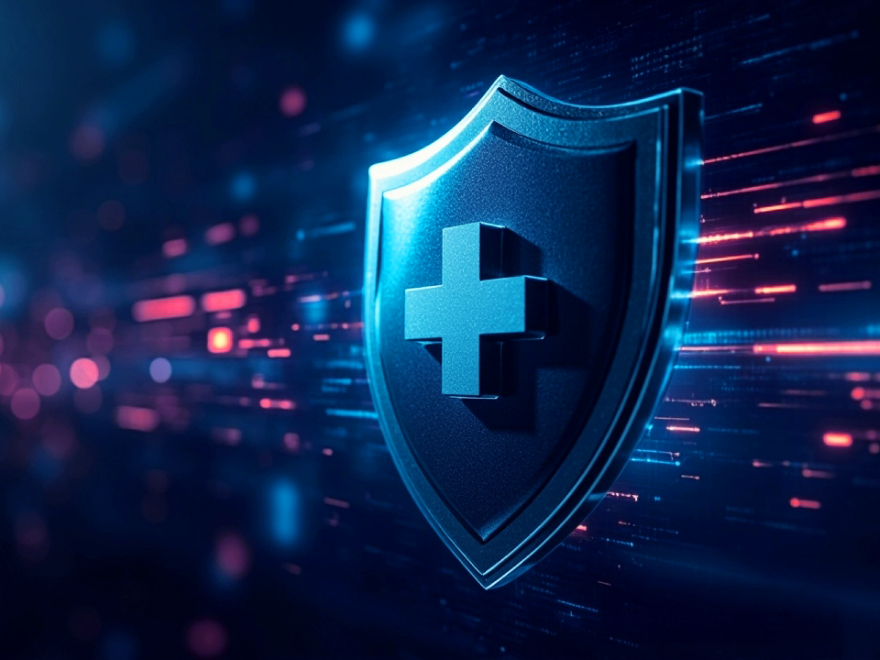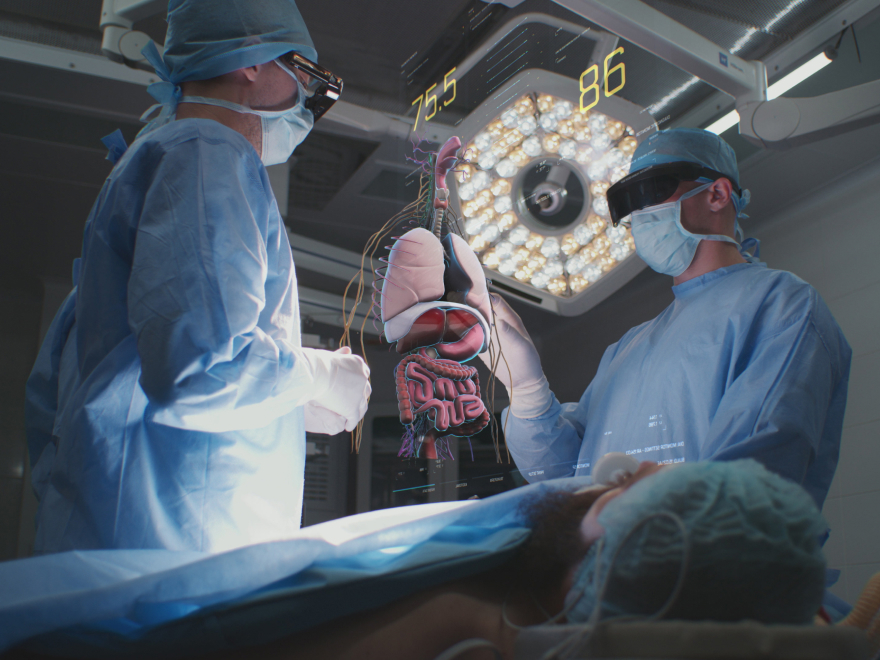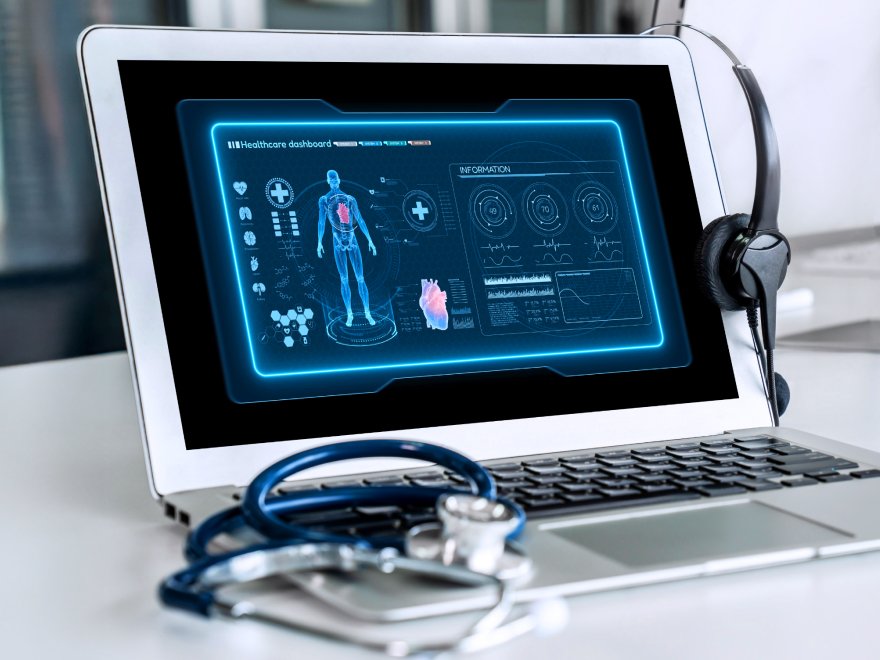- Gestão dos dados dos doentes
- Gestão da relação com os doentes
- Gestão de documentos
- Gestão de tarefas e colaboração
- Automação de vendas e marketing
- Relatórios e análises
- Portal de autosserviço do doente
- Integração com sistemas EHR
Gestão dos dados dos doentes
Cada CRM inclui um plataforma central onde se reúnem todos os dados relativos aos doentes, desde o historial médico e os resultados dos testes até às consultas agendadas e aos pedidos de apoio por chat. Com acesso a registos médicos completos e a históricos de interação, os prestadores de cuidados de saúde e os coordenadores médicos podem tomar decisões precisas e resolver os pedidos dos pacientes mais rapidamente.
Gestão da relação com os doentes
No centro do CRM dos cuidados de saúde, a gestão das relações ajuda gerir as interações entre os prestadores de cuidados de saúde e os doentes, os utilizadores do serviço de apoio ao cliente podem, por exemplo, responder a questões, agendar acompanhamentos e personalizar a comunicação com base nas preferências e no historial clínico dos doentes. Este nível de atenção ajuda a reforçar o envolvimento do paciente e a simplificar ainda mais os cuidados.
Gestão de documentos
Ao organizar os documentos dos doentes num repositório digital central, a gestão de documentos garante que toda a informação relevante é facilmente acessível aos profissionais de saúde. Também ajuda a controlar as versões dos documentos e a partilhar registos médicos, formulários de consentimento, pedidos de seguro e outros documentos essenciais.
Gestão de tarefas e colaboração
Com o CRM, é mais fácil para as equipas médicas acompanhar as tarefas em curso e manter-se em contacto relativamente à gestão de doentes. O pessoal pode facilmente acompanhar o progresso das tarefas, sincronizar horários e obter informações sobre os doentes em tempo real. Assim, as equipas mantêm-se a par do que é importante, sem o stress de fazer malabarismos entre os cuidados aos doentes e o trabalho administrativo.
Automação de vendas e marketing
Com as ferramentas de CRM para vendas e marketing, os prestadores de cuidados de saúde podem automatizar campanhas de correio eletrónico para identificar e cultivar potenciais pacientes e reter os actuais. Elaboração de estratégias de comunicação adaptadas para diferentes segmentos de público e o envio de mensagens instantâneas direcionadas diretamente a partir do CRM mantém os doentes envolvidos e informados.
Relatórios e análises
As ferramentas de CRM relatórios e análises fornecem às equipas informações em tempo real sobre os dados dos pacientes, tendências e processos operacionais. Estas ferramentas transformam os dados sobre a demografia dos pacientes, o tratamento, o envolvimento e as métricas de desempenho da prática em informações diretas e acionáveis para uma assistência mais eficiente e mais reactiva.
Portal de autosserviço do doente
Os doentes podem aceder às suas informações de saúde, marcar consultas, pedir recargas de receitas e comunicar com os seus prestadores através de um portal de autosserviço. Isto permite aos doentes assumir um papel mais ativo nos seus cuidados e simplifica as tarefas administrativas dos prestadores de cuidados de saúde, aumentando a eficiência global.
Integração com sistemas EHR
Ligar o CRM ao Sistema de registo de dados pessoais assegura uma fluxo contínuo de dados entre plataformas.
Permite que os prestadores de cuidados de saúde visualizem os registos dos doentes, os resultados laboratoriais e os históricos de tratamento sem mudar de sistema, o que permite tomar decisões mais rápidas e reduzir o risco de erros devido à fragmentação dos dados.
